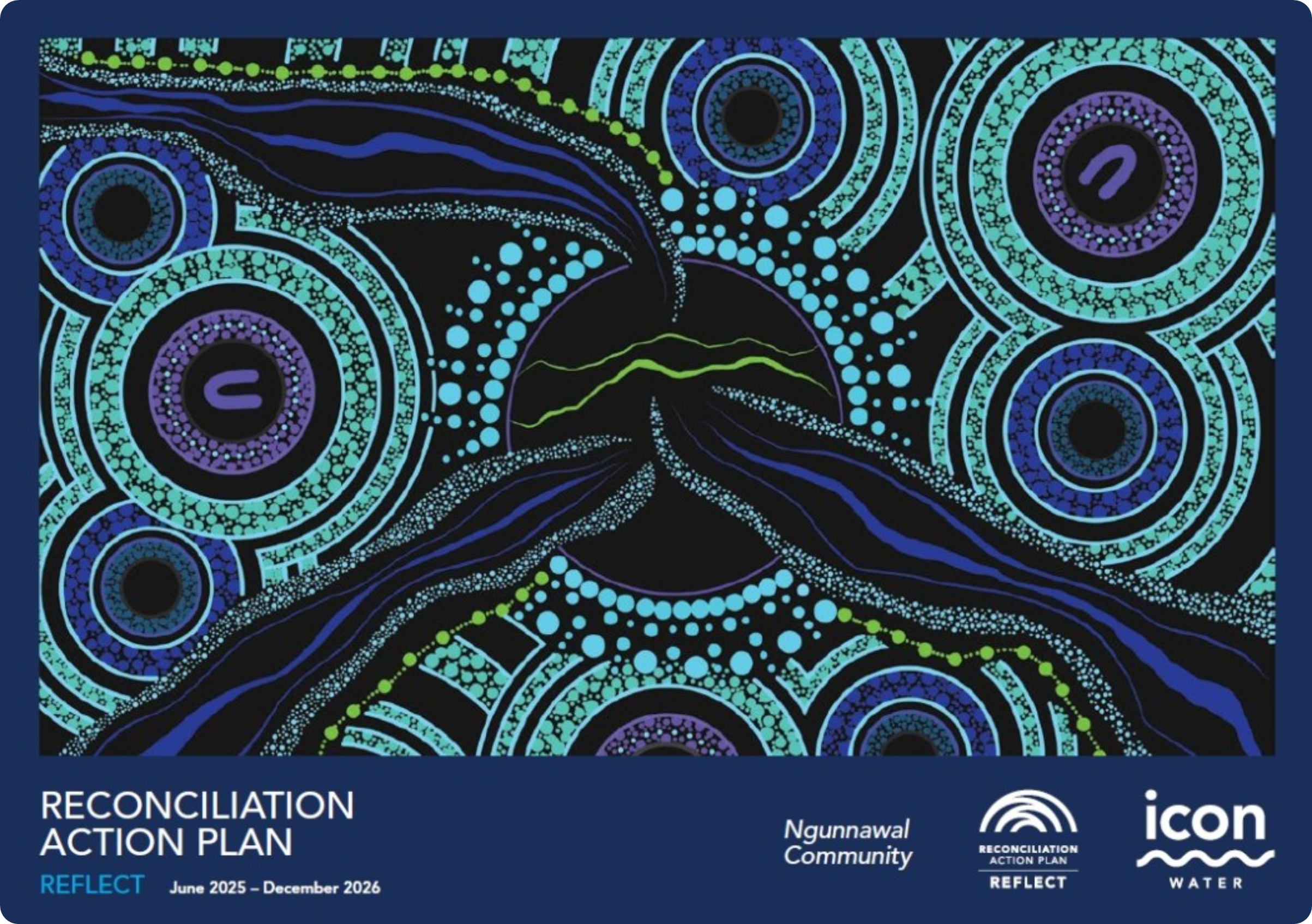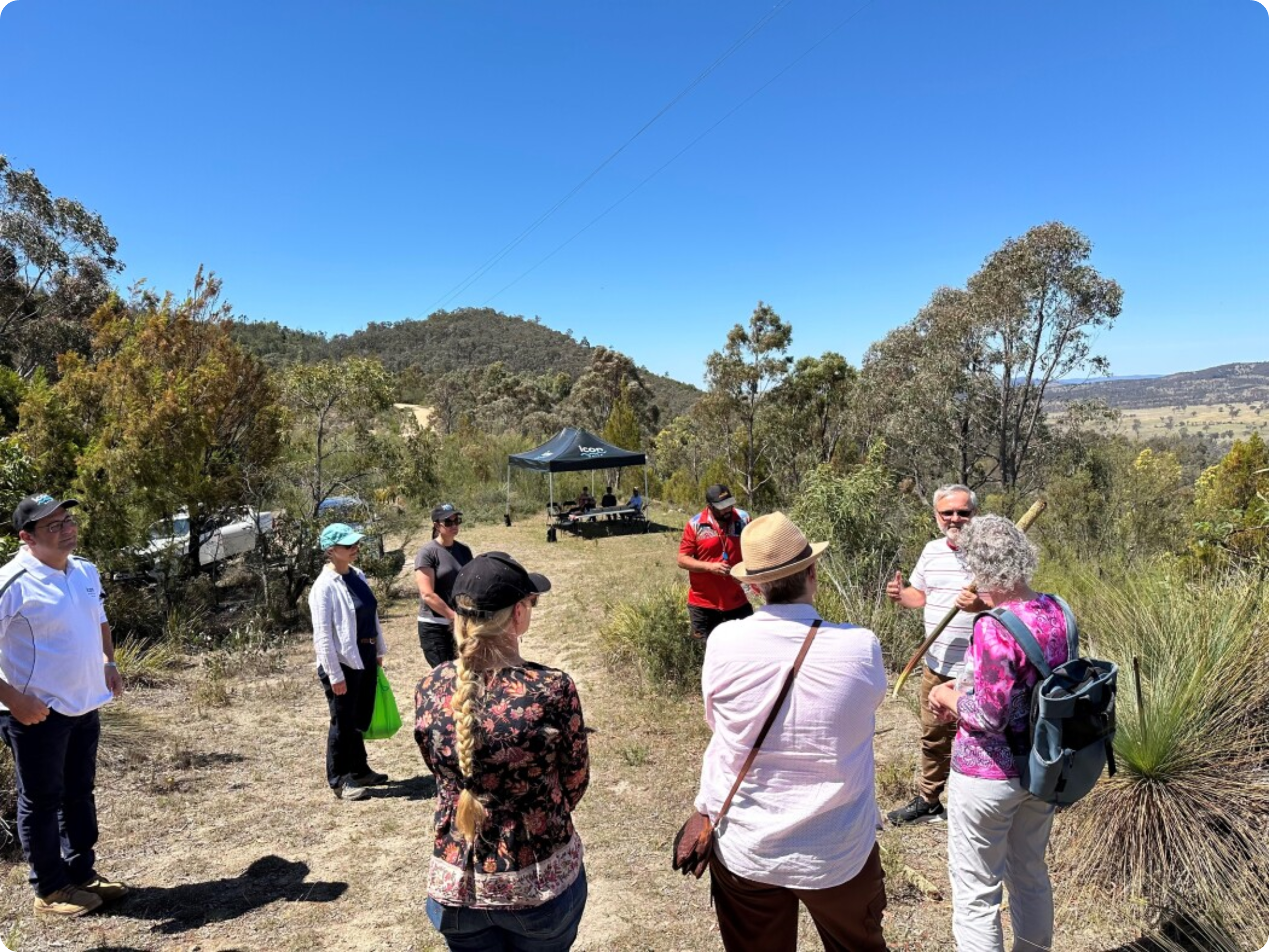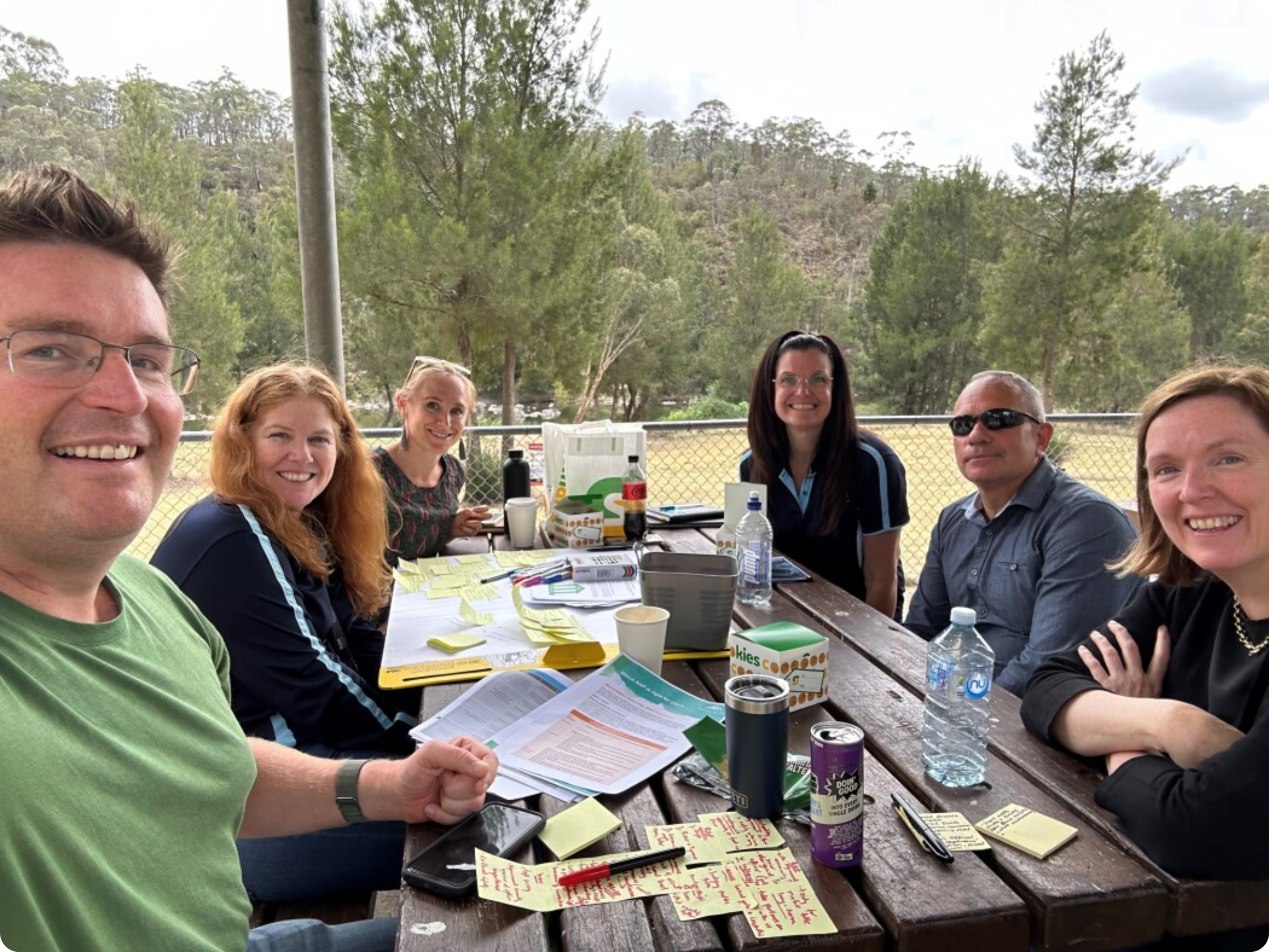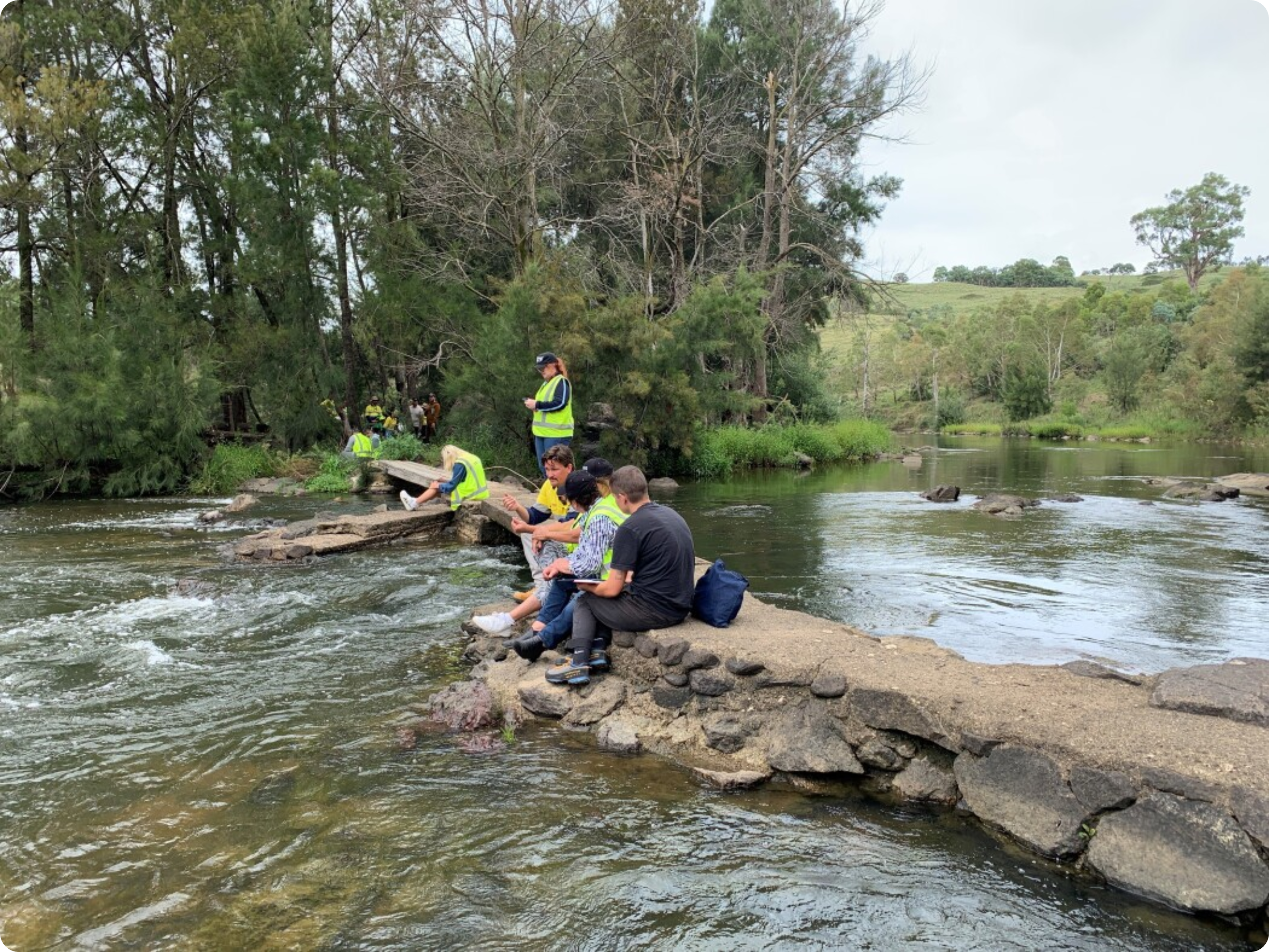Reconciliation
We are privileged to be the urban water cycle custodians for our capital region; helping protect human health and the environment on Ngunnawal Country.
Our purpose of delivering essential water services every day, and our vision of creating a sustainable water legacy, aligns with our Reflect Reconciliation Action Plan (RAP) commitment to foster relationships, respect and opportunities with Aboriginal and Torres Strait Islander (ATSI) peoples.
Our RAP was co-developed with the local Ngunnawal Community as Traditional Owners (TOs), walking together at the pace of trust to focus efforts where they matter most. It has been endorsed by both the TOs and Reconciliation Australia.
Our RAP actions focus on:
1. Understanding local Ngunnawal culture and ATSI people safety.
2. Enabling Ngunnawal community access to Country.
3. Active Ngunnawal community engagement on activities.
4. Supporting Aboriginal Water Assessments (AWAs).
5. Opportunities for Aboriginal and Torres Strait Islander peoples.

Click on this image to view our Reconciliation Action Plan (RAP).
Our values of community, care, courage and connection relate directly to understanding, engagement, healing and activities with our local Ngunnawal people, ATSI peoples in the broader region and our workforce. Which includes:
- Caring for Country (people and place).
- Speaking up and sharing diverse views.
- Supporting each other to deliver better outcomes.
Delivery of this RAP is part of our Business Strategy and supports our commitment to building long-term relationships that improve outcomes for our community and the environment.
Aboriginal Water Assessments
Aboriginal Water Assessments (AWAs) are facilitated with the Ngunnawal community by the Ngunnawal Water Policy Officer in the ACT Office of Water. Many AWAs have been completed in waterways across the ACT, with involvement of public land managers and water cycle custodians as relevant to each location. Location and frequency are subject to a range of considerations including community interest, planning focus, major projects and coverage to capture indigenous knowledge.
Participants from the Ngunnawal community record their observations, feelings, artwork, stories, science and other cultural knowledge for the area using the AWA form on an iPad, which is entrusted to the Ngunnawal Water Policy Officer for confidential safekeeping and generation of a findings report that can be used to inform land and water policy and management. Outcomes may also be shared with entities such as water and wastewater utility Icon Water to inform water cycle activities as one part of walking together on our reconciliation journey.
AWAs are critical to understand indigenous perspectives on waterway health and management as part of caring for Country. Watch the video below with Ngunnawal Water Policy Officer Bradley Djirabidj Bell to learn more about the why, what and how of AWAs.
Snapshots from our reconciliation journey:

Bradley Djirabidj Bell and Justin Reid with the Icon Water Board in October 2024. | 
Tyronne Bell with the Icon Water First Nations Advisory Group at Casuarina Sands in November 2024. | 
Ngunnawal Aboriginal Water Assessment on the Molonglo River in February 2025. |
